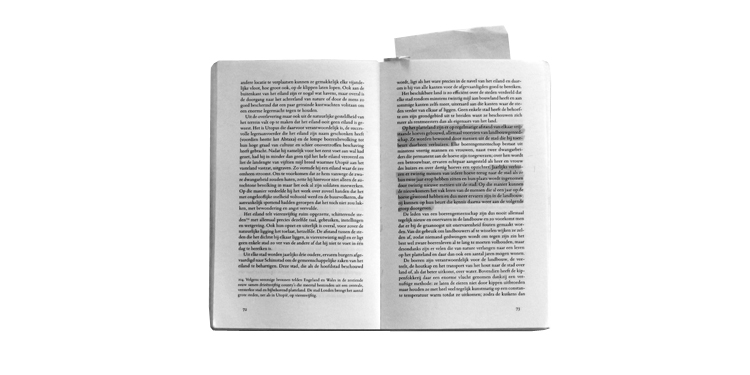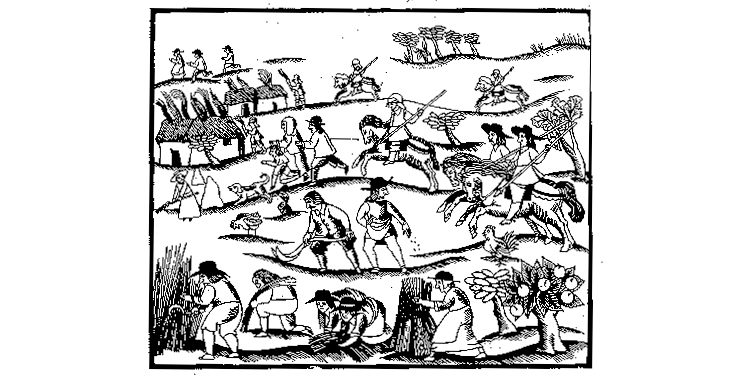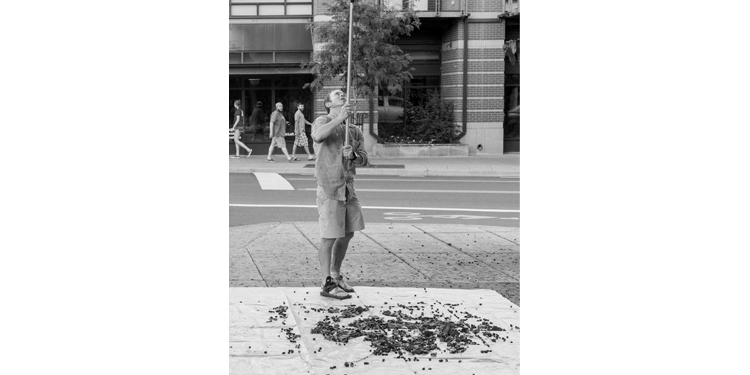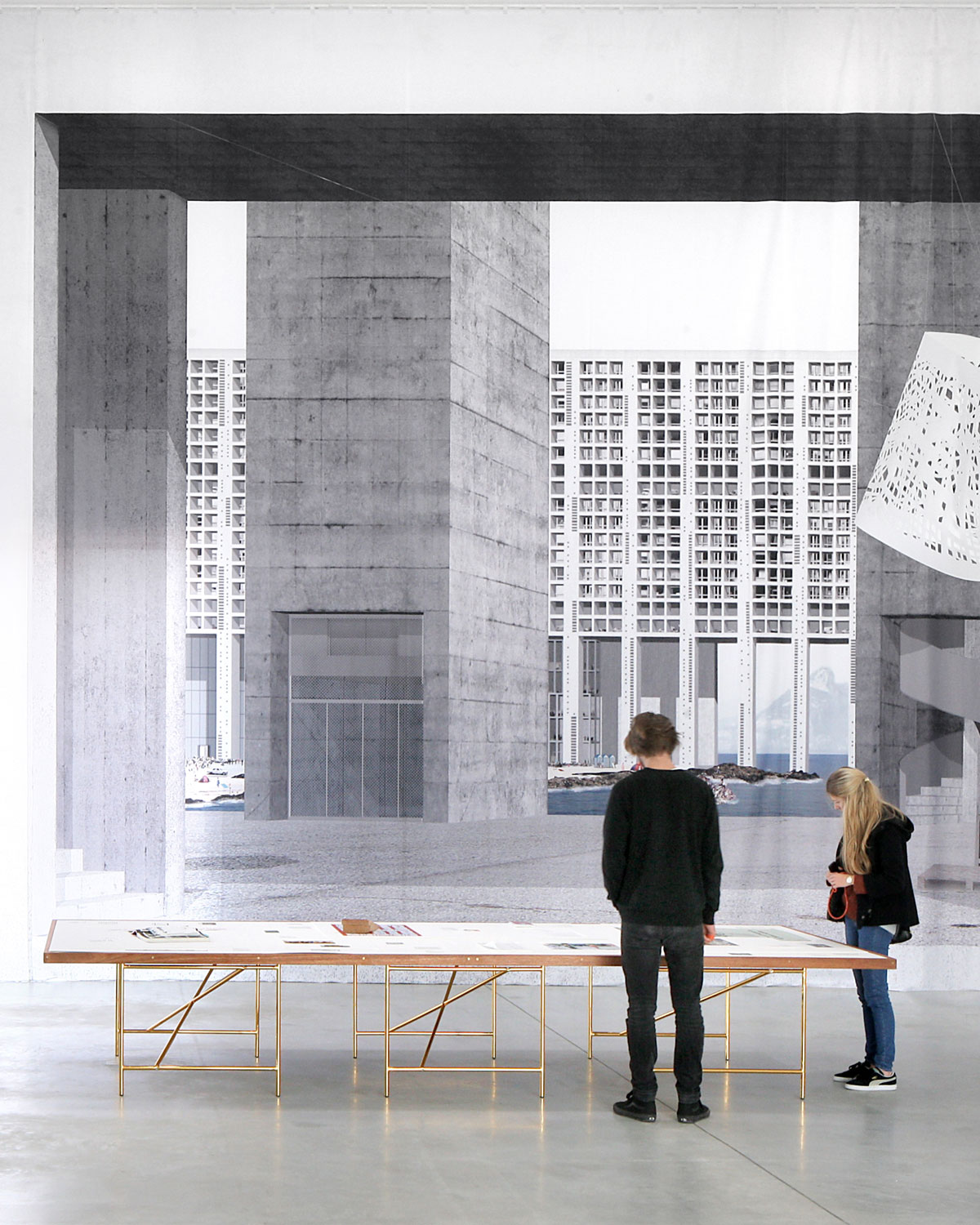
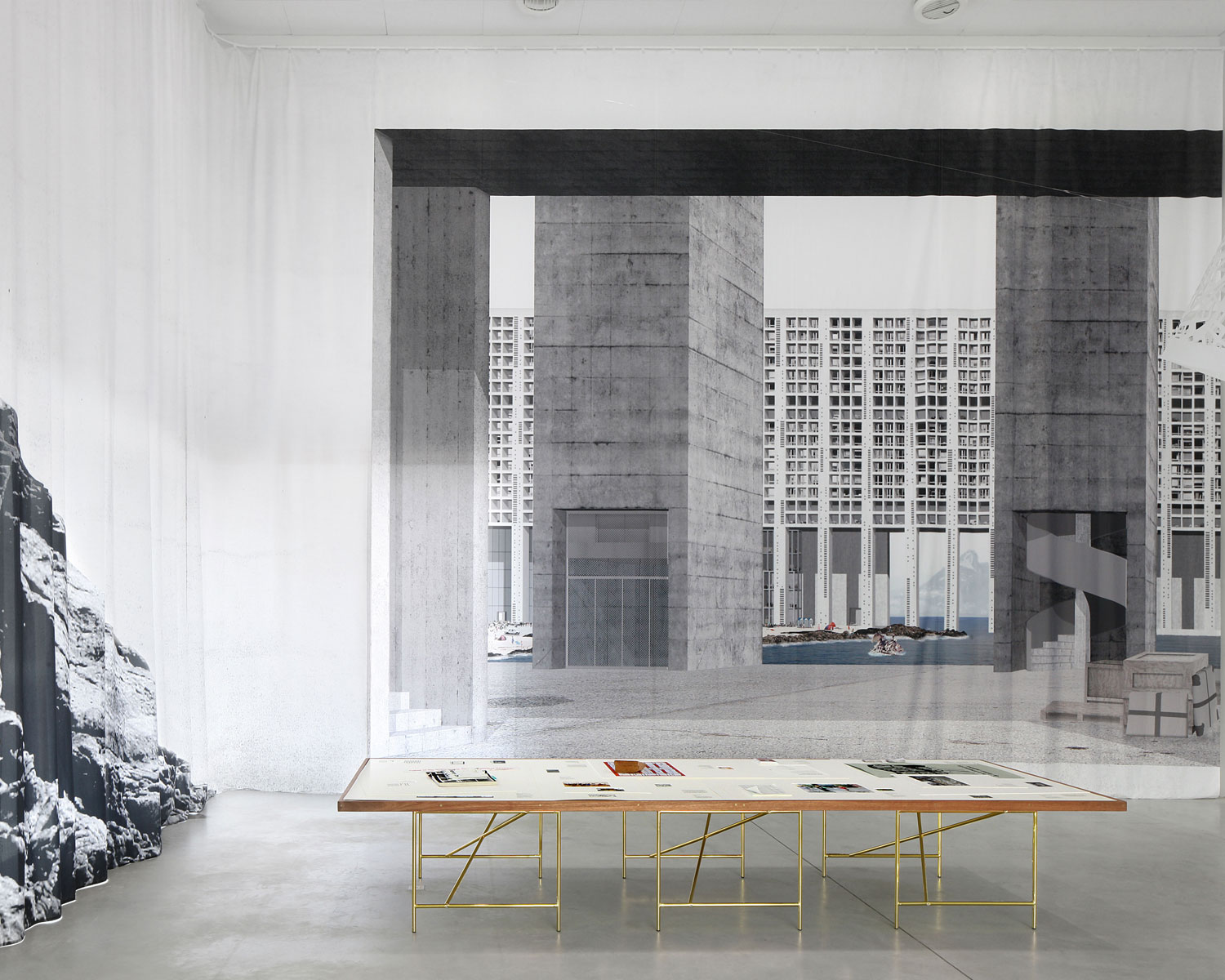
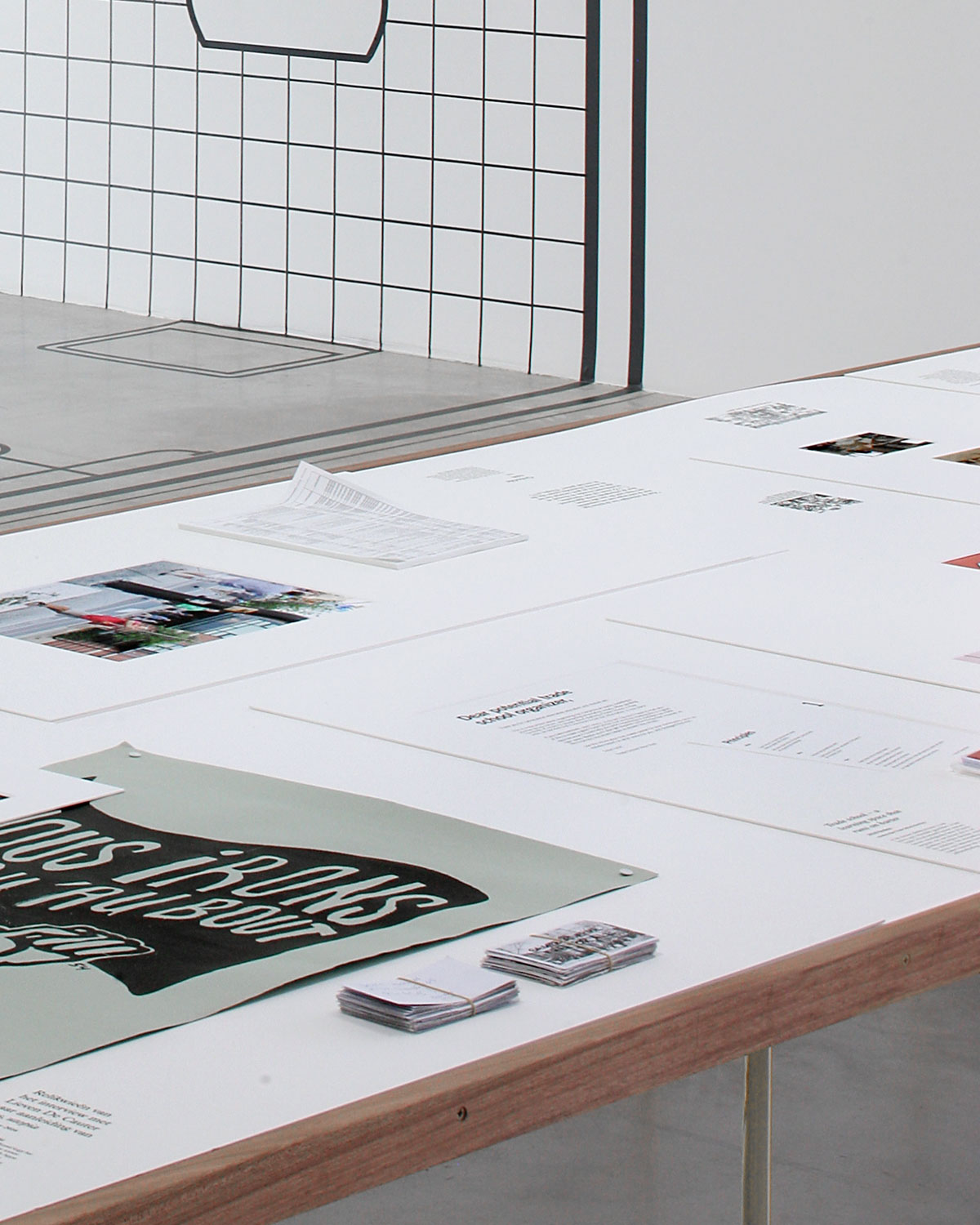
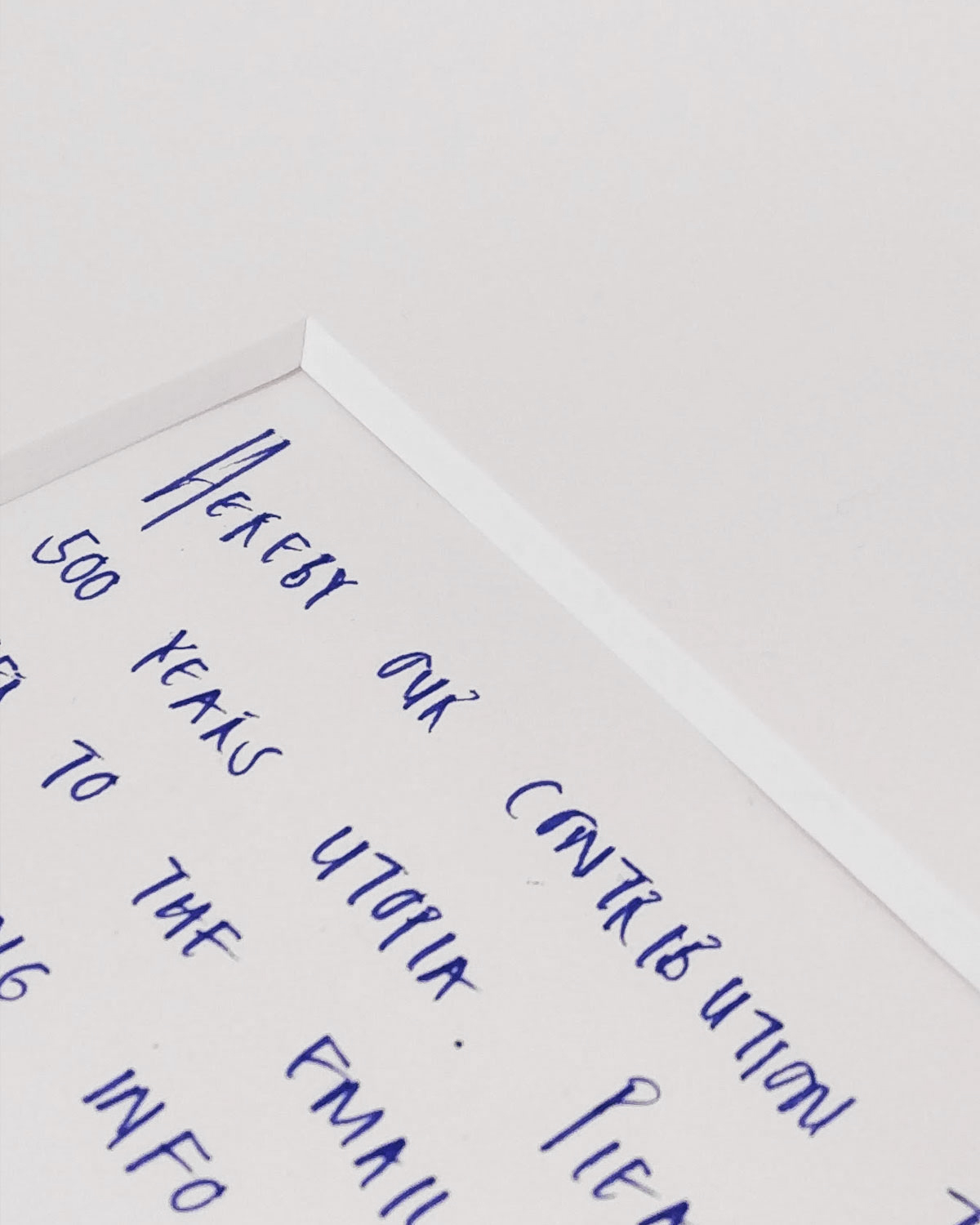

Oops,utopia
Museum M, Leuven2016
To
mark the 500 years existence of the book Utopia by Thomas More, five
teams of leading Belgian architects and artists contributed to the exhibition
EUtopia at Museum M in Leuven, Belgium. Camiel Van Noten collaborated with
artist Wouter Van der Hallen and
researcher Maxime Peeters. The other invited practices were Office Kersten
Geers David Van Severen, JDS Architects, noAarchitecten, and LAb[au].
![]()
Thomas More, Utopia, 1516
‘However, there are many things in
the commonwealth of Utopia that I rather wish, than hope, to see followed in
our governments.’
Thomas More concludes his book
with this sentence. He incites readers to take the representation of the ideal
society as an instigation to improve their own world. The
installation entitled Oops, utopia revolves around contemporary
initiatives and projects that carry ‘utopian potential’. As a tribute to the
500th anniversary of the book Utopia, this installation celebrates moments of
collectivity that take place around us today.
![]()
“England is not a free people, till the poor that have no
land,
have a free allowance to dig and labour the commons…”
Gerrard Winstanley, 1649
have a free allowance to dig and labour the commons…”
Gerrard Winstanley, 1649
Oops, utopia is a
direct response to passages from the book Utopia that particularly appeal to
us. The projects and initiatives shown are echoes of the spatial types of collectiveness
described by Thomas More: the non-denominational chapel where different
religions come together, the farm as a productive space for compulsory
contribution to shared prosperity, the dining room for the neighbourhood where
people gather for a common meal and the shared garden as a canvas for
collective identity formation.
![]()
Francis Cape
We sit together: utopian benches, 2013
We sit together: utopian benches, 2013
Where on
the island of Utopia collectiveness originates from the compulsive, almost
totalitarian, regime of Utopus, collectiveness in EUtopia is growing from the
bottom up through locally organized initiatives and open source technologies.
![]() A member of Falling Fruit
A member of Falling Fruit
harvesting fruit from a public tree.
Despite their often large-scale ambitions, these current European utopias
manifest themselves as marginal phenomena in the borders of society and in
urban residual spaces. Thanks to their concrete approach, utopia takes
precedence over policy and regulation and collectiveness becomes a driver for
emancipation and social evolution.
harvesting fruit from a public tree.
Location: Museum M, Leuven, Belgium
Year: 2016
Type: Installation
Client: Stad en Architectuur Leuven and Museum M
Curators: Joeri De Bruyn en Ward Verbakel
Scenography: plusoffice architects
Collaboration: M. Peeters, W. Van der Hallen
Year: 2016
Type: Installation
Client: Stad en Architectuur Leuven and Museum M
Curators: Joeri De Bruyn en Ward Verbakel
Scenography: plusoffice architects
Collaboration: M. Peeters, W. Van der Hallen

